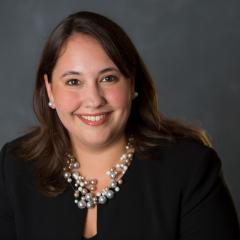
After Silence, that which comes Nearest to expressing the inexpressible is music
Aldous Huxley taught, “After silence, that which comes nearest to expressing the inexpressible is music.” The most significant moments of our lives have a soundtrack; they have a musical framework that our families, our people, and our society build. During the civil rights movement in America, African American spirituals like Oh Freedom (http://youtu.be/XKlgL4SkkqA) and We Shall Overcome
(http://youtu.be/TmR1YvfIGng) inspired, led, and exclaimed the charge of our fellow citizens looking for justice, for equality. Though we may lift up many moments in time as an example, these musical moments of the mid-twentieth century ring with the rich power of communal song. We can hear them today as an ongoing sweet call to justice.
As the keepers of the tradition of Jewish song, cantors know well the power of the musical moments of our tradition that lifted, led and inspired our ancestors. Whether the songs of the chalutzim, pioneers of Israel, or the songs of today, through generations our music has called us to our core responsibilities as Jewish people. We have taken up the core responsibility taught to us by our prophets, “Do justice, love mercy and walk humbly before your God.” (Micah 6:8) More over, across North America, our responsibility is communicated to the next generation through our teaching about social justice – and even more – through our songs. As we celebrate 75 years of NFTY (North American Federation of Temple Youth), let us look at the songs of social justice and social responsibility that grew in our movement and continue to inspire us today.
In 1986, Andy Vogel wrote Mitzvah Goreret Mitzvah. (https://www.youtube.com/watch?v=hD0gUTaG35w) This text from Pirkei Avot reminds us that one mitzvah leads to another, and sin, the same. In this singable tune, well-loved from many a camp and NFTY song session, being a tzaddik(righteous person) is fun!
The Israeli folk song, Od Yavo Shalom by Mosh Ben Ari is a favorite across youth of all ages. Its message of peace across peoples and for the entire world is anthem in its own right. The song’s message gains meaning and significance for youth and adults alike with its simple choreography, popular at Friday-night Israeli dance sessions at camp and NFTY events. Check out Jewish musical performer, Rick Recht, singing it here (https://www.youtube.com/watch?v=0hQxxwO0MvM).
Though one more example will hardly have scratched the surface of this rich musical tradition being upheld and acted upon by the next generation, let’s take one more moment to look at a childhood favorite and inspiring blessing. Dan Nichols contributed a blessing of justice and repair of the world when he brought L’takein (the Na Na song) to the scene in 1996 (https://www.youtube.com/watch?v=Vbqlr62Vnxk). This huge hit helped to frame experience of doing justice and repairing the world as a blessing, and as an opportunity. “Blessed are You God, Ruler of the world, who has given us the opportunity to repair the world.”
In honor of the 50th Transcontinental Music (URJ Books and Music), in partnership with the RAC and the American Conference of Cantors, has published a new songbook (which also includes a 2-CD set): Tzedek Tirdof—The Social Action Songbook. Our reach for justice expands when we allow ourselves to be inspired, anniversary of the Religious Action Center of Reform Judaism (2011), encouraged, and led by the soundtrack of our people – our ability to expand our reach is real when we inspire the next generation to feel that same commitment, and to heed the call through song.
(For more information on the songbook, head to
http://urjbooksandmusic.com/product.php?productid=11801&cat=414&page=2)
Cantor Rebecca Robins serves as the Cantor Educator at Temple Sinai in Washington, DC. Prior to coming to Washington, DC in 2012, Rebecca was the Cantor-Educator at Congregation Sinai in Milwaukee, WI. Rebecca holds a Bachelor of Music degree from the State University of New York College at Potsdam Crane School of Music. She was ordained in 2008 at the School of Sacred music at Hebrew Union College-Jewish Institute of Religion.

